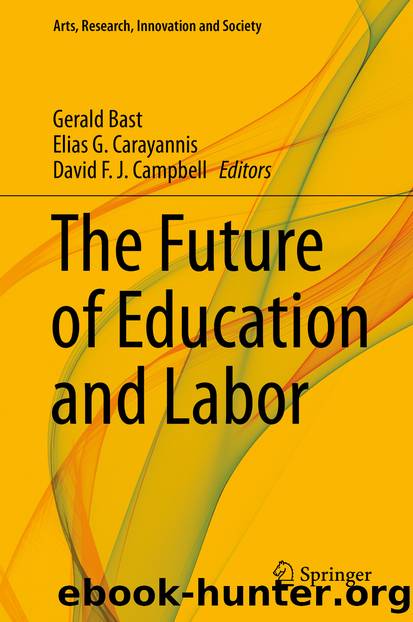The Future of Education and Labor by Unknown

Author:Unknown
Language: eng
Format: epub
ISBN: 9783030260682
Publisher: Springer International Publishing
8.8 Conclusion
The continuous reforms of the Russian education system reflect a general attempt of Russian Government policymakers to solve numerous and multifold internal and external problems and challenges on a basis of the trial-and-error approach, trying out this policy or that, hoping to discover one that will be the best (Dubina and Carayannis 2015). Very often only a short period has elapsed between the introduction of one policy document and the introduction of another, as that indicates just how quickly education policy and strategic vectors change in Russia (Limanova et al. 2016). The conceptual and principal strategic documents have been revised or somewhat changed every 3â4 years on average, that is, too short a period for a long-term education policy.
Definitely, a trial-and-error strategy is not the best way to make decisions, especially policy decisions. When policymakers establish well-developed policy guidelines, they should change education policies only seldom, to secure the stability of an education environment. Education development requires a long-term view, so an education policy should be stable and consistent over a long period. University students, professors, and administrators want and should have a clear vision and a detailed road map of the future of education. An education policy should be more certain and less ambiguous, since the âtrial and errorâ failures and errors cost very much. The policymaker should be guided, at least as a worst-case scenario, by the principle âif you are lost and do not know where to go, you should go straight ahead and never alter your direction.â The policymaker should not be like the Tsar in the Russian fable who commanded, âGo there â I do not know where â and find that â I do not know whatâ (Dubina and Carayannis 2015).
In a turbulent environment and when confronted with different challenges, a policymaker has âa temptationâ to change or âimproveâ the policy, hoping to design better conditions and incentives for the key stakeholders of the education system. But although such a temptation appears to be quite reasonable per se, it is often not good for education, as it introduces higher levels of unpredictability and discontinuity. If the ârules of the gameâ are changed often and abruptly, risk and uncertainty are introduced that discourage the education system. Highly volatile and ambiguous policies disrupt education.
The solution of the problems of economic education discussed in this chapter, especially at the school level, is a complex task that should integrate the existing reserve and achievements in this area with potentials of all interested stakeholders (Federal and regional authorities, leading universities, institutions of Russian Academy of Sciences, foreign partners, etc.) in order to improve the concept of professional economic education, including the goals, objectives and outcomes of economic education at different levels, a status and the contents of the subject of economics in schools and universities, requirements for school teachers of economics, and measures for their training. All of these issues should be merged into a unified project with an estimate of the time and expenses for its implementation.
The
Download
This site does not store any files on its server. We only index and link to content provided by other sites. Please contact the content providers to delete copyright contents if any and email us, we'll remove relevant links or contents immediately.
Bullshit Jobs by David Graeber(4190)
Radical Candor by Kim Scott(2724)
I Am Right, You Are Wrong by Edward De Bono(2442)
23:27 by H. L. Roberts(2251)
Nomadland by Jessica Bruder(2064)
Average Is Over by Tyler Cowen(1848)
The Conflict Resolution Phrase Book by Barbara Mitchell & Cornelia Gamlem(1779)
Out of Our Minds: Learning to Be Creative by Ken Robinson(1745)
High-Impact Interview Questions by Victoria A. Hoevemeyer(1692)
Who Moved My Cheese?: An Amazing Way to Deal With Change in Your Work and in Your Life by Johnson Spencer(1648)
An Everyone Culture: Becoming a Deliberately Developmental Organization by Robert Kegan & Lisa Laskow Lahey(1644)
The Ideal Team Player by Patrick M. Lencioni(1643)
The Asshole Survival Guide by Robert I. Sutton(1599)
Automatic Society by Bernard Stiegler(1556)
Unleashed by Anne Morriss & Frances Frei(1543)
Who by Street Randy & Smart Geoff(1506)
42 Rules of Employee Engagement by Susan Stamm(1477)
96 Great Interview Questions to Ask Before You Hire by Paul Falcone(1452)
Fish! by Stephen C. Lundin(1405)
